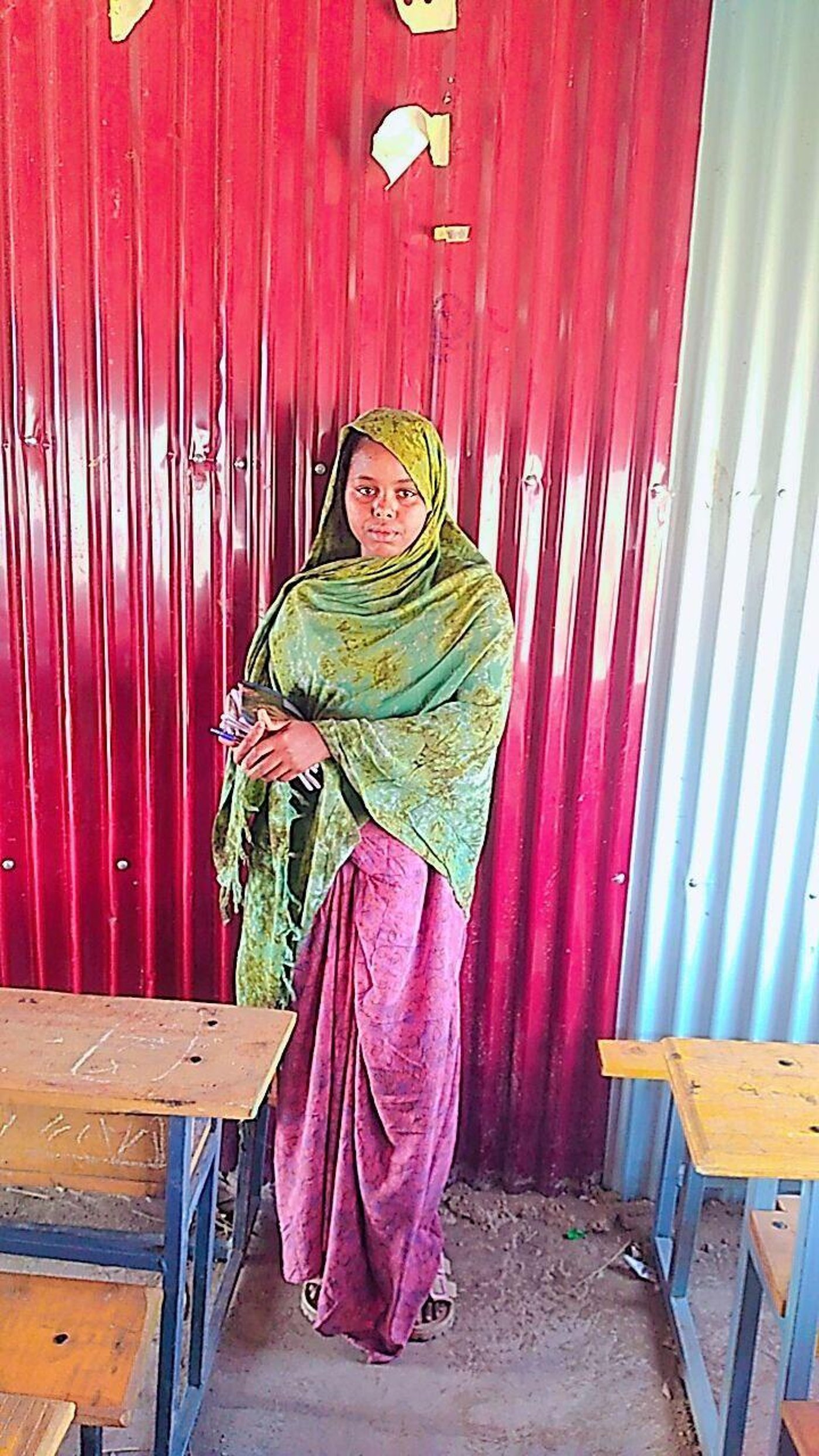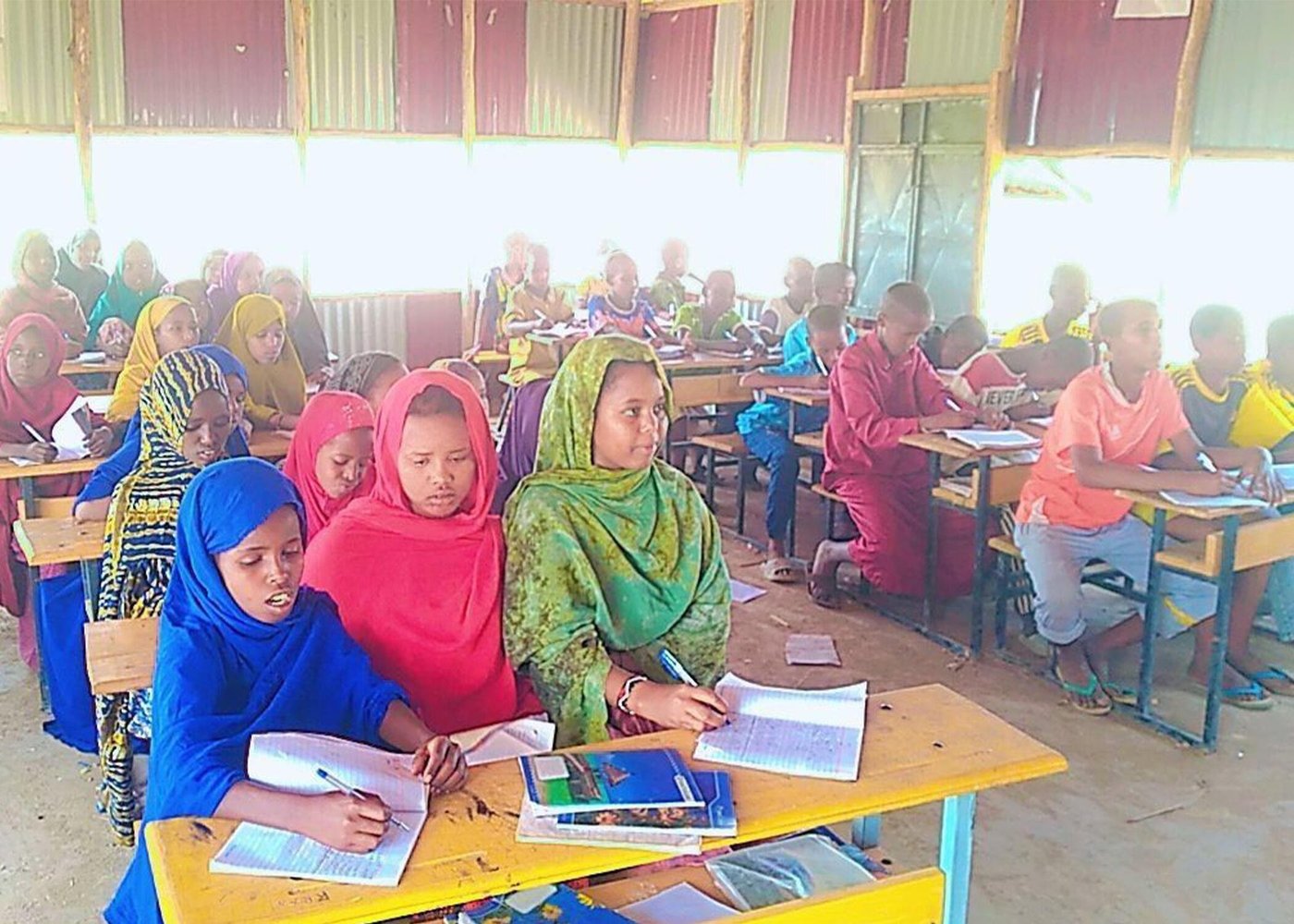Barwako was out of school for over two years. During this time, she helped care for her younger siblings and took on household responsibilities. Like many displaced children, she worried whether she would ever return to the classroom.
“I used to watch other children carrying school bags and wonder if I would ever go back to school again,” says Barwako.
With support from EU Humanitarian Aid, the Norwegian Refugee Council (NRC) launched an education in emergencies programme to help children like Barwako access learning again. NRC established temporary learning spaces equipped with desks, learning materials, latrines, hygiene facilities, and clean water. Teachers received training to deliver both formal and non-formal education, including psychosocial support and life skills.
As part of this intervention, NRC introduced an accelerated education programme for children aged 9 to 14 who had missed months or years of school. We spread the word about the programme through community visits and back-to-school campaigns, which led to 305 children signing up, 152 of whom were girls.
“When I started, I could not read or write well. I was shy and afraid to answer questions,” Barwako shares.

With the support of trained teachers and tailored learning materials, she made significant progress. Within one year, she completed the equivalent of two years of primary education. Her teachers describe her as highly motivated and eager to learn, quickly becoming a role model for her classmates.
“Now, I help my classmates with reading and homework. I feel happy when I can support others,” she says with a smile.
After passing her transition assessment, Barwako advanced to the next learning level and is now preparing for formal education. She hopes to one day become a teacher herself.
“I want to become a teacher so I can help children who are like me,” she says.
The programme has helped restore access to education for many displaced children in the Somali Region. For Barwako, it has offered not only learning but renewed hope for the future.
Sign up to our newsletter to read more stories from around the world.


